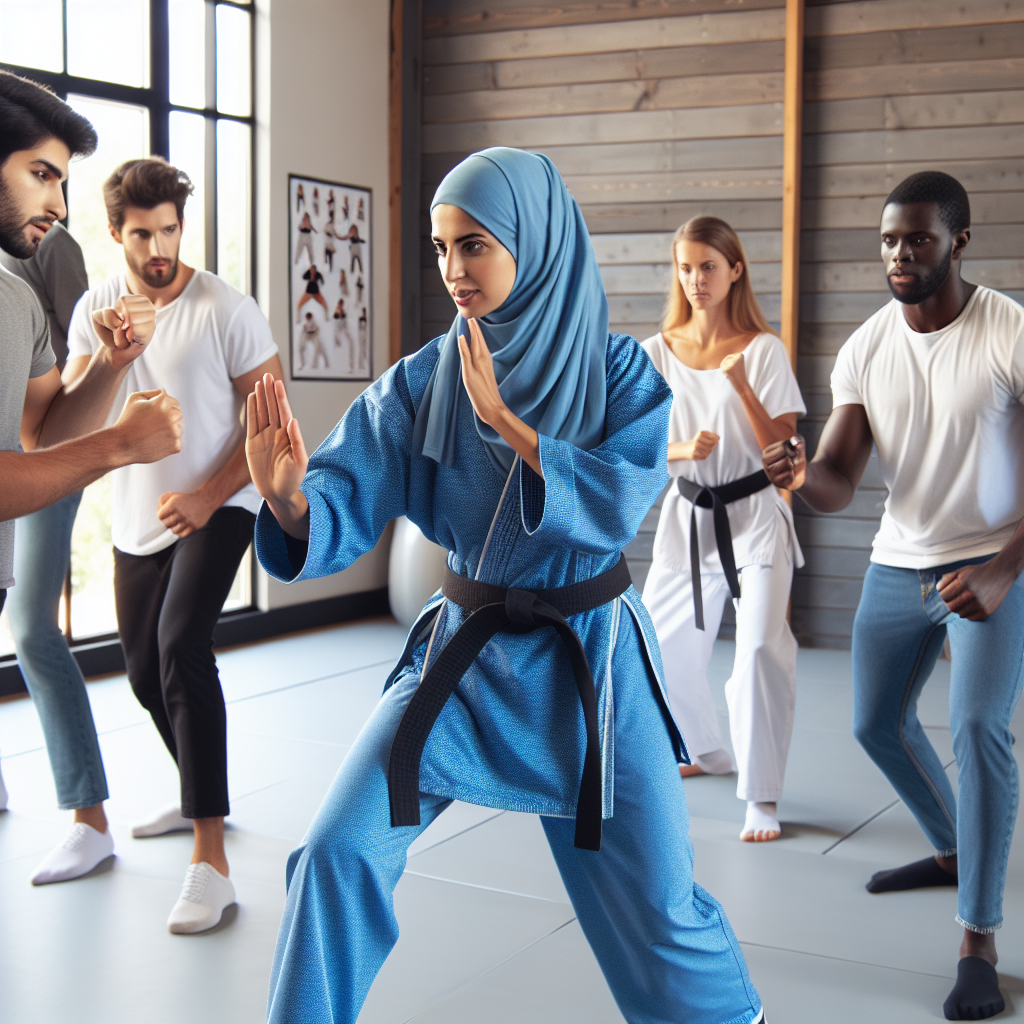Empowering Self-Defense: Women Unite Against Racist Attacks
Maya Hassan organized a self-defense class in London for around 30 women, largely Muslims and ethnic minorities, in response to violent, racist attacks. The riots, fueled by misinformation, targeted Muslims and migrants. The classes aim to build confidence and provide practical self-defense skills amid rising violence.

At a London sports ground, Maya Hassan looks on with pride as around 30 women, nearly all Muslims and from ethnic minorities, join a self-defense class she organized in response to a wave of riots that saw violent, racist attacks on Muslims and migrants.
The 28-year-old martial arts expert said she wanted to help women of color learn how to deal with abuse, build connections, and gain confidence after more than a week of unrest aimed at mosques, asylum seeker hotels, and the police. "It gives you a little bit more confidence," she said. "You kind of know what to look for, how to be socially aware, how to spot things, and how to get out of a really bad situation."
Muslim and ethnic minority communities have expressed shock over the disorder sparked by false information online that the suspected killer of three young girls in a knife attack in Southport, northwest England, was an Islamist migrant. Martial arts instructor Stewart McGill noted an increase in women signing up for classes since the unrest started, teaching them how to defend themselves with tactics like kicks and impromptu weapons such as belts.
One attendee, Elza Annan, 24, said she felt more confident. "I obviously don't want to have to use these techniques, but it is useful and beneficial to have them, especially because of recent events of far-right racists coming out and targeting people of color," she said.
The riots have largely targeted migrants, Muslims, and Asian people, spreading fear through ethnic minority communities and highlighting Britain's challenges with integration. Tell MAMA UK, a group monitoring anti-Muslim incidents, reported a growing trend in hate directed at Muslims, with more than 500 calls and online reports since the riots began.
Sunder Katwala, director of the think-tank British Future, described Britain as a "confident multi-ethnic democracy" but criticized the lack of government strategy for integrating diverse communities. While recently arrived Ukrainians and Hong Kong residents received government support, others, notably asylum seekers, faced a strained system and public concerns about pressure on housing, healthcare, and education.
'With asylum, you've got a visible lack of control, and that can feed into fear,' Katwala explained. Thousands of anti-racism protesters have since mobilized to protect potential targets like immigration advice centers, mosques, and hotels housing asylum seekers, leading to a decrease in the riots.
Hassan, a hijab-wearing Swiss national of Somali origin who moved to Britain in 2008, considers organizing more classes. A similar event is planned for Manchester, and The Three Hijabis campaign group hosted an online conference discussing the psychological impact of Islamophobic violence.
Shaista Aziz, the group's director, expressed concern over the potential for confrontations, prompting some women to stay close to home. 'Today I advised a sister I dearly love to consider removing her hijab to stay safe,' she shared on social media during the riots. 'Across the country, British Muslims are having these same conversations.'
Prime Minister Keir Starmer, who has ordered additional protection for the Muslim community, described the rioters as 'far-right thugs,' with almost 800 arrests made, some fast-tracked through courts. Anti-racism protests are expected to continue.
Maki Omori, 23, who identifies as non-binary, found the class beneficial for preparing for counter-protests. 'I found it really intimidating, thinking about how I would defend myself,' Omori said. 'I want to make sure that if something happens, I feel ready.' (Additional reporting by Marissa Davidson; editing by Giles Elgood)
(With inputs from agencies.)










